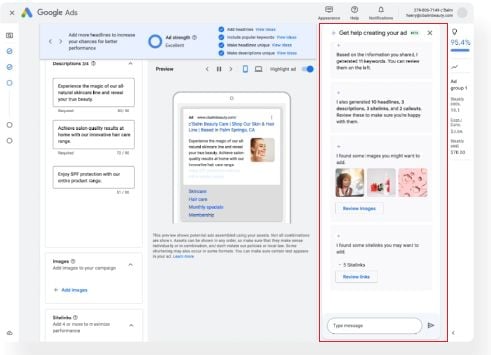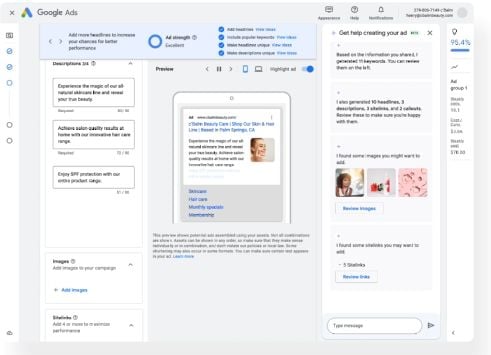Google’s bringing generative AI to search campaigns, with the expanded rollout of its Gemini AI model to Google Ads, which will eventually provide all Google advertisers with a dedicated ad assistant chatbot, built into the creation process.

As you can see in this example, Google’s Gemini-based chatbot is being added to the right side of your Google ads composer screen (highlighted in red), enabling you to pose questions to the system to improve your ad approach.
As explained by Google:
“The conversational experience workflow is designed to help you build better Search campaigns through a chat-based experience. It combines your expertise with Google AI. All you need to start is your website URL and Google AI will help you create optimized Search campaigns by generating relevant ad content, including creatives and keywords.”
Given the technical complexities of SEO, and optimizing for search intent, that could be very handy, with Google’s own AI process able to suggest the most relevant terms based on trending searches and user activity.
For example, you could ask it to come up with variations of your ad copy, and the system would then be able to highlight more specific matching language, geared around search interest. You could also ask it to provide more ad headlines to consider, helping you to refine your Google ads, by referencing its database of successful ad examples, then cross-matching that against your products.
It could be a big help in identifying the right terms to target, and it’ll be interesting to see whether those variations will include both short and long-tail matches to help expand your ad approach.
Google’s also adding a new visual element, which will enable you to generate custom visuals based on the images on your product landing page, or full image creation in-stream.
“All images created with generative AI in Google Ads, including the conversational experience, will be identified as such. We’re using SynthID to invisibly watermark these images and they will include open standard metadata to indicate the image was generated by AI.”
Which is part of Google’s commitment to more responsible use of AI, which is also part of the reason why Google has been slower than others, like OpenAI, in rolling out generative tools.
As noted, given the technical understanding required to optimize your SEO process, generative AI is actually very well suited to assist, because it can reference Google’s massive database of trend data to highlight the most relevant, most searched terms for your specific offerings.
You can, of course, do this research yourself, but Google’s assistant tool could reduce a lot of the legwork, enabling you to hone in on niche opportunities by prompting it to find the best keyword matches and queries to target.
And it’s coming soon.
Google says that beta access to its new conversational experience in Google Ads is now fully available to English language advertisers in the U.S. and U.K., and will begin rolling out globally to all English language advertisers over the next few weeks.



